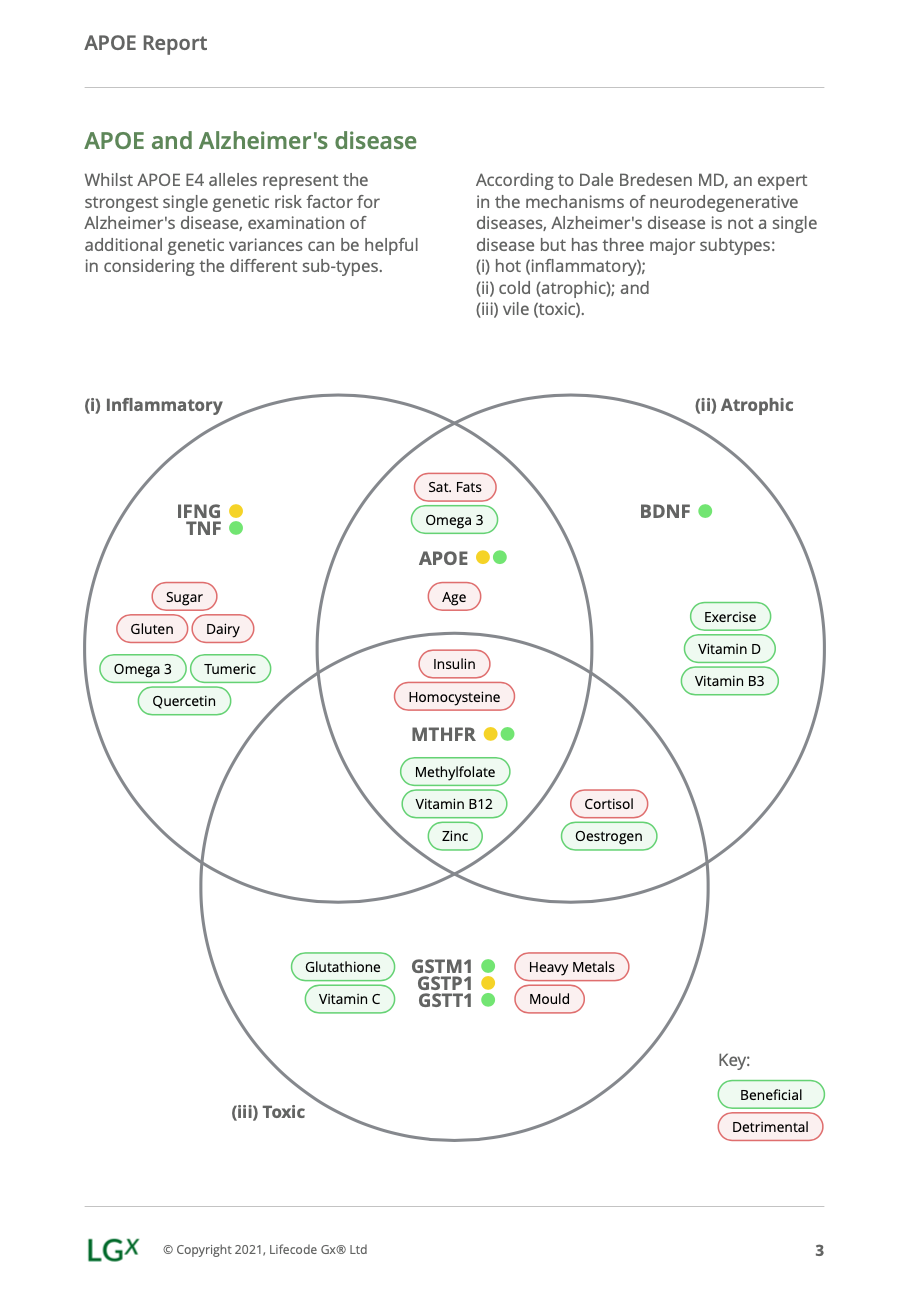APOE Report
The Apolipoprotein E (APOE) gene is best known for its role in lipid (fat) metabolism by helping to remove cholesterol from the bloodstream. It can exist in three main forms known as E2, E3 and E4.
The E4 form of the APOE gene has been associated with increased plasma cholesterol and triglycerides and susceptibility to cardiovascular disease - heart attacks or strokes due to atherosclerosis, insulin resistance and Alzheimer’s disease. However, having an E4 genotype is one of many risk factors and does not mean you will develop any of these conditions.
In addition to APOE, this test examines genes involved in methylation, inflammation, toxicity and neuroprotection, to enable individuals to take preventative action by adopting personalised nutrition and lifestyle changes to optimise their future, long term health.
Genes Included
Lipid Metabolism: APOE
Methylation: MTHFR
Inflammation: IFNG and TNF
Detoxification: GSTM1, GSTT1 and GSTP1
Neuroprotection: BDNF
All of the Lifecode Gx reports include
personalised, colour coded genotype results
gene function and SNP impact descriptions
clinically relevant SNPs
nutrient and other epigenetic impacts
links to research evidence

